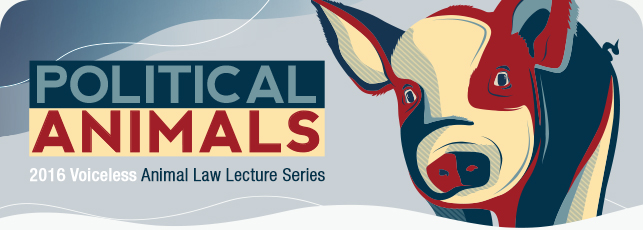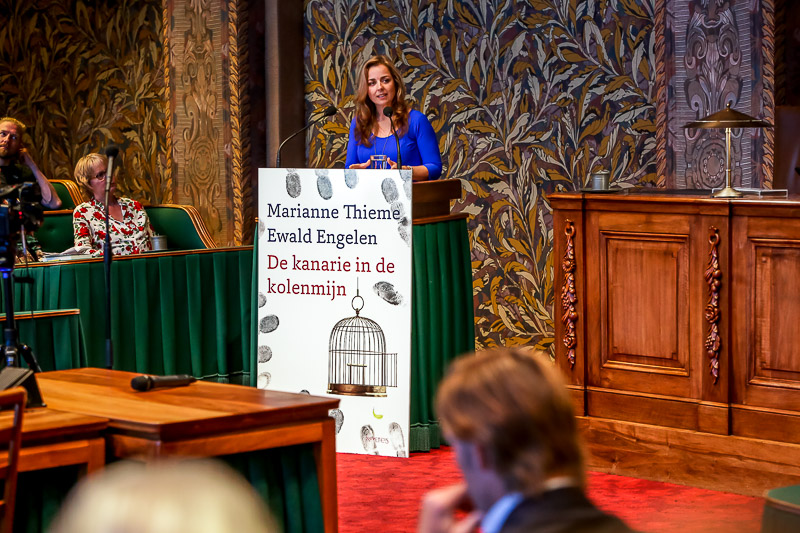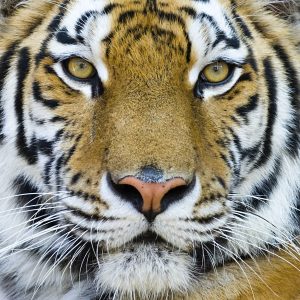Worldlog 9 Mai 2016
Ich schreibe diesen Weltlog aus Australien. Auf Einladung der australischen Tierrechtsorganisation Voiceless gebe ich zwischen dem 4. Und 17. Mai Lesungen in Australien. Während 10 Lesungen werde ich an verschiedenen Universitäten und bei einer Anwaltskanzlei über die Vorreiterrolle in Tierschutzdebatten, und natürlich auch über deren politische Bedeutung sprechen. Ich bin begeistert, dass mir durch Voiceless diese phantastische Chance geboten wird. Meine Tournee bleibt auch hier in Australien nicht unbemerkt. Bereits 1700 Menschen haben sich bis jetzt für meine Lesungen angemeldet und The Sydney Morning Herald hat aufgrund meiner Lesungstournee nachfolgenden Artikel publiziert.

Mein neustes Buch `Der Kanarienvogel in der Kohlenmine` gibt es ab sofort als englisches e-Buch! Ich habe dieses Buch zusammen mit dem Finanzgeographen Edwald Engelen geschrieben. Wir warnen darin vor der Unhaltbarkeit der heutigen politischen und finanziellen Entscheidungen. Und darum fordern wir einen radikalen Umschwung. Ewald aus ökonomischer und ich selbst aus ökologischer Perspektive. Es wird Zeit für Plan B !
Am 21. April fand eine festliche Vorstellung meines Buches `Der Kanarienvogel in der Kohlenmine` im Bundestag statt. Fotos der Buchvorstellung finden Sie hier. Bereits 2 Wochen nach Verkaufsstart musste der 2. Druck in Auftrag gegeben werden. Es ist doch schön zu wissen, dass soviel Menschen Interesse an unserer Botschaft haben!
Die englische Version ist als e- Buch zu beziehen über niederländischen Webshops, über Amazon.com, Amazon.co.uk und ab nächster Woche auch über Amazon.com.au.

Als letztes habe ich Ihnen breaking news mitzuteilen: Dank eines durch mich eingereichten Antrags, dürfen Jagdtrophäen von 200 Wildtieren nicht länger in die Niederlande eingeführt werden. Das bedeutet, dass ab sofort u.a. Elfenbein, Tigerfelle und Nashörner an der niederländischen Grenze nicht länger einfuhrberechtigt sind. Jäger zahlen viel Geld für Jagdreisen auf Elefanten, Löwen und andere bedrohte Tierarten. Dank dieses neuen Importverbots können Jäger zuhause nicht länger mit ihrem außerhalb Europas geschossenen Wild angeben. Hoffentlich wird hiermit der Anreiz genommen, ausländische Natur als Schießplatz zu gebrauchen.

Herzliche Grüße,
Ihre Marianne
I am writing this Worldlog from Australia. At the invitation of the Australian animal rights organisation Voiceless I am giving a series of lectures in Australia between the 4th and 17th of May. I will give 10 lectures at different universities and a law firm explaining the role of the booster in the animal rights debate, and of course also the political meaning of this booster role. I think it is great that Voiceless has given me this opportunity. And my tour around Australia is certainly not going unnoticed here. Almost 1,700 people have registered to attend my lecture and the Sydney Morning Herald has published the following article relating to my lecture tour.

My new book The Canary in the Coal Mine is now available as an English e-book! I wrote this book together with Ewald Engelen, professor of Financial Geography. We warn against the unsustainability of today’s politics and financial choices. And that is why we advocate a radical change of direction. Ewald from an economic perspective and me from an ecological standpoint. Time for plan B!
On the 21st of April last, we celebrated the launch of The Canary in the Coal Mine in the Senate. Pictures of the book presentation can be viewed here. After just two weeks of the book being for sale a second edition was required already. It is great to see that so many people are interested in our message!
The English e-book version can be ordered from Dutch webshops and via Amazon.com, Amazon.co.uk, and as from next week on Amaxon.com.au.

And last I have some breaking news: thanks to a motion I submitted it is no longer allowed to import hunting trophies of 200 wild animals into the Netherlands. This means that as from now, ivory, tiger skins and rhino horns are rejected at Dutch borders. Hunters pay a great deal of money for trips to hunt elephants, lions and other threatened animal species. Thanks to the new import ban, Dutch hunters can no longer show off the wild species they have shot outside of Europe. Hopefully this will take away the key incentive to use foreign nature as a shooting gallery.

Kind regards,
Marianne